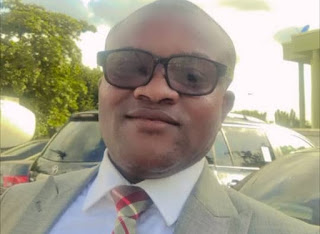Marginalization of the Igede People: A Call for Inclusive Representation
By Clement Alegu,
In the heart of Yala 2 Constituency in Local Government Area in Cross River State lies the Igede Ward, a diverse and culturally rich region inhabited predominantly by the Igede people. However, an issue of concern has emerged—the over-domination of the Igede Ward by the Ezekwe and Okpodon villages, which has left the core Igede people marginalized and underserved.
This situation calls for a reevaluation of representation and a push for inclusivity that truly empowers the Igede tribe.
For far too long, the Igede people, who form the majority in the Igede Ward, have found themselves in a state of disparity due to what seems to be a disproportionate distribution of resources and benefits. The influence of the Ezekwe and Okpodon villages, coupled with their related affiliations to the Ukelle, has perpetuated a cycle of neglect that has persisted over time.
One striking example of this imbalance is the political landscape in the Igede Ward. The marginalization against the IGEDE PEOPLE of prominent positions over the years has led to a situation where our voices are often overshadowed and our quest for economic, infrastructural and sociopolitical growth and development stunted. These has adversely affected the average IGEDE Man, hence the call for a fundamental change in how the Igede people are represented in governance.
Empowerment through government representation is a vital component of inclusive development. The Igede people, with their unique cultural heritage and diverse perspectives, deserve an equitable share in the political sphere. To ensure a fair and just representation, it is imperative that members of the Igede tribe are also given the opportunity to hold key positions and contribute their insights to local decision-making processes.
Liberating the Igede people from the shackles of marginalization requires a collective effort. It's a call to action for the community, the government, and relevant stakeholders to recognize the potential within the Igede tribe and work towards bridging the gap in representation. To achieve this, dialogue and collaboration are essential. Open conversations need to take place among all parties involved, addressing grievances and identifying practical steps towards empowerment.
Summarily, the time has come to break free from the status quo and pave the way for an inclusive and vibrant Igede Ward. Through fair representation and an unwavering commitment to equality, the Igede people can finally be placed at the forefront of local governance. Only then can the full potential of the Igede tribe be harnessed, contributing to the growth and prosperity of not just the Igede Ward, but also the entire Yala Local Government Area, Cross River State, and Nigeria as a whole.



